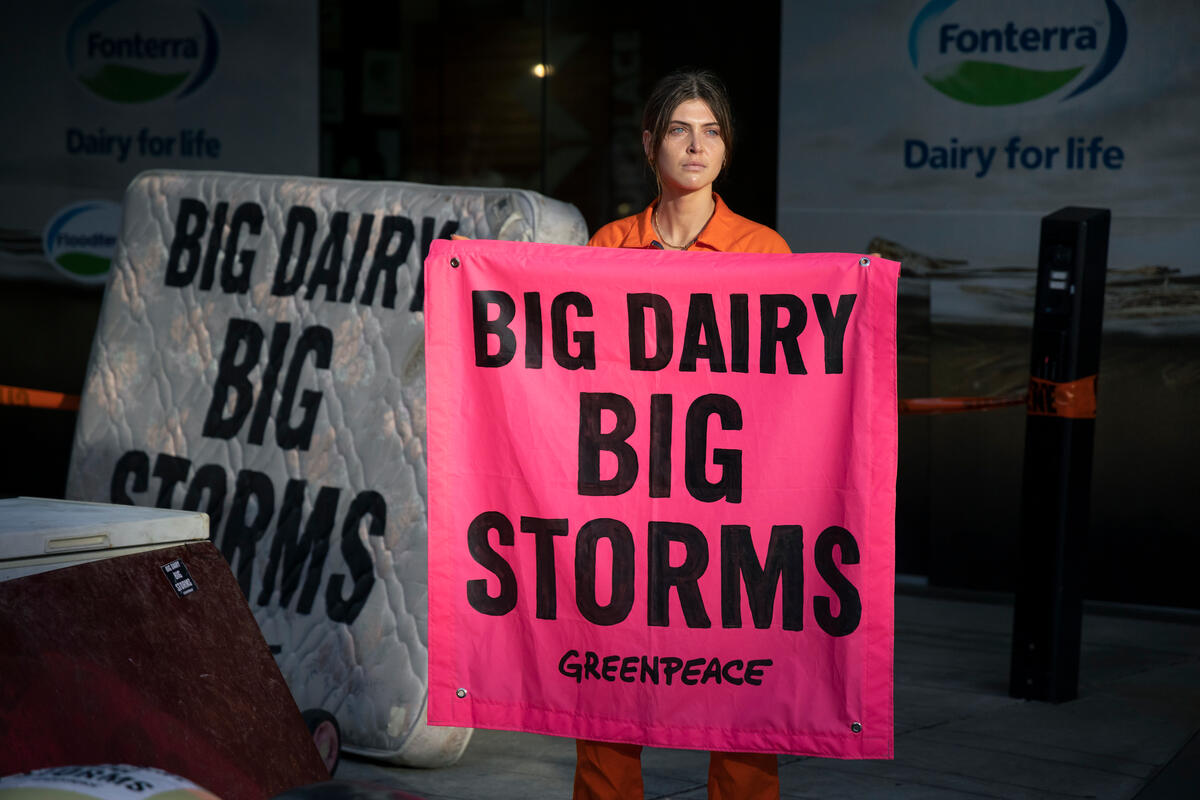According to independent watchdog Consumer NZ, New Zealand is “rife with greenwashing”, with many companies positioning themselves as “sustainable”. No doubt you’ll have seen such claims on the products in your weekly shopping basket.
The practice is coming under increasing scrutiny, in New Zealand and around the world, due to concerns that it denies meaningful consumer choice. Studies show brands advertising their sustainability perform better, but consumers can’t be expected to research every claim.
Overseas, legislative moves are being made to tackle greenwashing. The European Parliament, for example, has just approved a directive that will ban baseless marketing claims such as “environmentally friendly”.
The directive will also cover “claims that a product has a neutral, reduced or positive impact on the environment because of emissions offsetting schemes”. This will be particularly challenging for fossil fuel energy companies and other large polluters as they attempt to claim carbon neutrality through offset schemes.
Consumer NZ and others (including the Environmental Law Initiative where I also work), are currently seeking a High Court declaration that Z Energy has breached the Fair Trading Act with its advertising, including the claim it is “in the business of getting out of the petrol business”.
Z Energy has responded by saying its own transparency over emissions reporting makes it a target. The company’s CEO has been reported as saying the threat of legal action might mean big emitters “say less, do less and are less ambitious” about their attempts to meet emissions targets.
It’s the first major case in New Zealand concerning alleged climate greenwashing, and its outcome will be closely watched.
Drawing a legal line
An international consumer survey published late last year looked at perceptions of green claims. It found three out of four European respondents believed “very polluting” companies should not be allowed to use any green claims at all.
Close to 40% of respondents in Europe thought fossil fuel companies should not be allowed to do any advertising. Results were “broadly similar” for New Zealand respondents (and those from other countries) to the same survey.
Behind these sentiments is a simple logic. If advertising drives consumption, and consumption of fossil fuels is driving climate change, then ending the promotion of fossil fuels is part of the solution. There are obvious parallels with the restriction of tobacco advertising.
In practice, however, there are significant challenges to defining the scope of any such laws. We all use fossil fuels every day, not only to run vehicles, but by our reliance on products in which the burning of oil, coal and gas is embedded, including their supply chains.
Where would we draw the line? An ambitious private members bill recently tabled in the Canadian parliament tries to answer that question. It reads:
It is prohibited for a person to promote a fossil fuel, a fossil fuel-related brand element, or the production of a fossil fuel, except as authorized by the provisions of this Act or of the regulations.
“Promotion” in this bill is defined as:
a representation about a product or service by any means […] that is likely to influence and shape attitudes, beliefs and behaviours about the product or service.
This is potentially much larger in scope than some existing European bans on the advertising of specific industries, such as France’s ban on the advertising of fossil fuel energy products. This has been criticised by Greenpeace for still allowing certain types of advertising, including sporting event sponsorship.
Increasing climate litigation risk
Because each country’s emissions profile is different, it might be most feasible to focus legislation on the most polluting companies or sectors, including carbon-intensive sectors that are still growing.
In New Zealand, that would mean limitations on the advertising of fossil fuel-intensive agricultural products and private transport (including non-electric cars and aviation). Or it might simply mean prohibitions on advertising by the largest emitters.
In theory, such measures could be part of New Zealand’s second Emissions Reduction Plan, which is due this year. This will contain strategies, policies and actions for achieving the country’s second emissions budget, and contributing to global efforts to limit temperature rises to 1.5°C.
However, the current government has made it cheaper to buy petrol in Auckland, and has curtailed various public transport schemes. It seems unlikely we will see fossil fuel advertising bans in this parliamentary term, and any private member’s bill also seems destined to fail.
For all these reasons, attention is turning to the use of existing law in novel ways. As the Z Energy case suggests, New Zealand’s Fair Trading Act is likely to be increasingly used to challenge fossil fuel advertising.
The Act contains prohibitions against “misleading and deceptive conduct”, as well as “unconscionable conduct”. Neither has been properly tested in the New Zealand courts in the context of climate change.
Climate and the law
If consumer sentiment continues to harden, we can imagine a time when any positive advertising by a large climate polluter could be deemed to be misleading or unconscionable.
The risk for corporations is therefore increasing. As a recent report on climate litigation from global consultancy Deloitte argued:
If policymakers do not enact adequate laws and standards, and companies do not apply these quickly and forcefully, individual constituents of society will increasingly turn to the courts to protect their own interests, those of their children and descendants, as well as the planet itself.
However, at a time when rapid change is needed to address the climate crisis, driving it through the courts will be slow and incremental.
Specific legislation setting limits on fossil fuel advertising would be a far more efficient way of regulating claims by high-polluting industries. Such legislation would also provide more certainty for those industries.

Urge the Advertising Standards Authority to ban the advertisement of products that are proven to contribute significantly to emissions of air pollutants in Aotearoa.
Sign the petitionMatthew Hall, Visiting Scholar, Faculty of Law, Te Herenga Waka — Victoria University of Wellington
This article is republished from The Conversation under a Creative Commons license. Read the original article.



